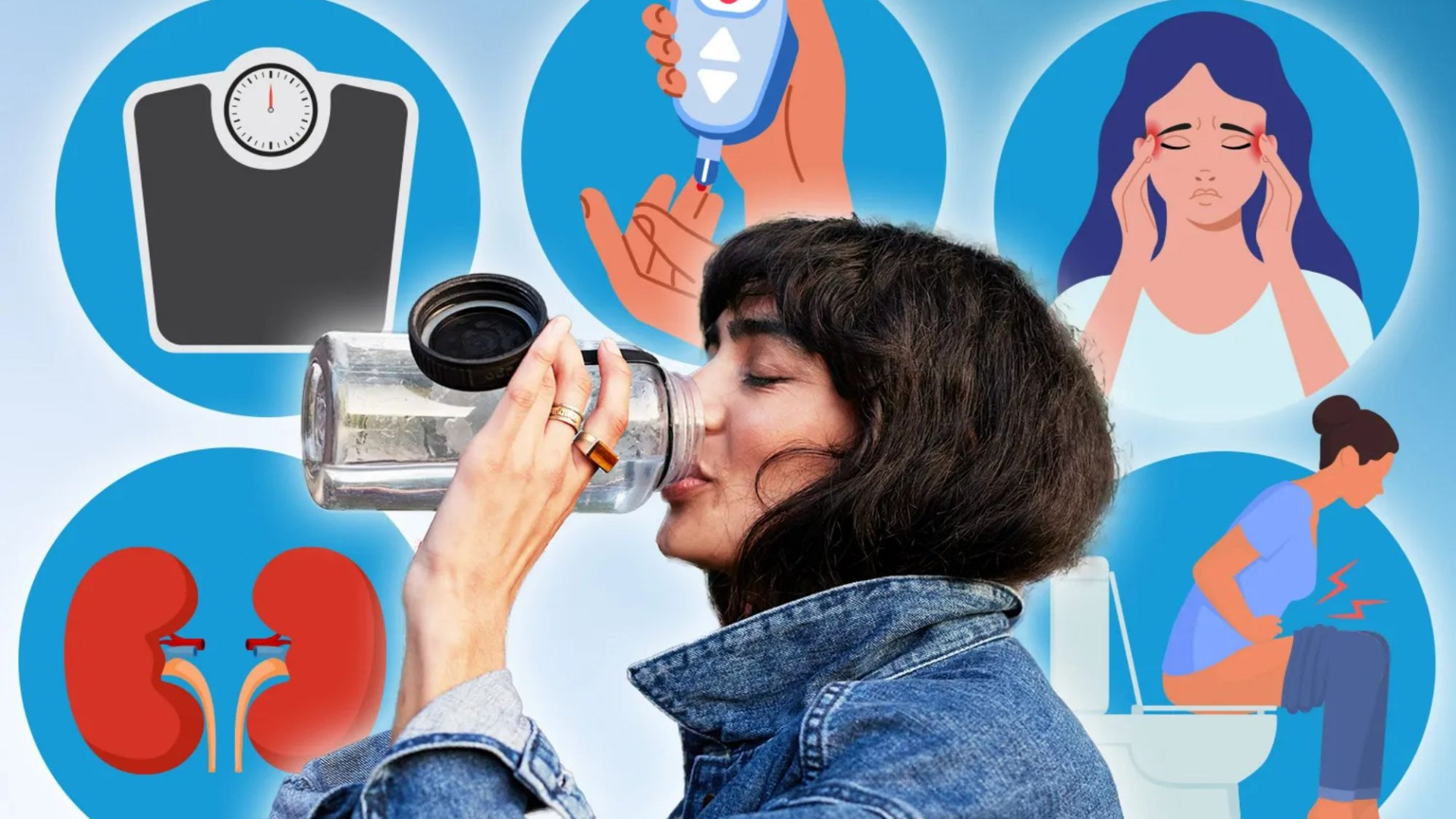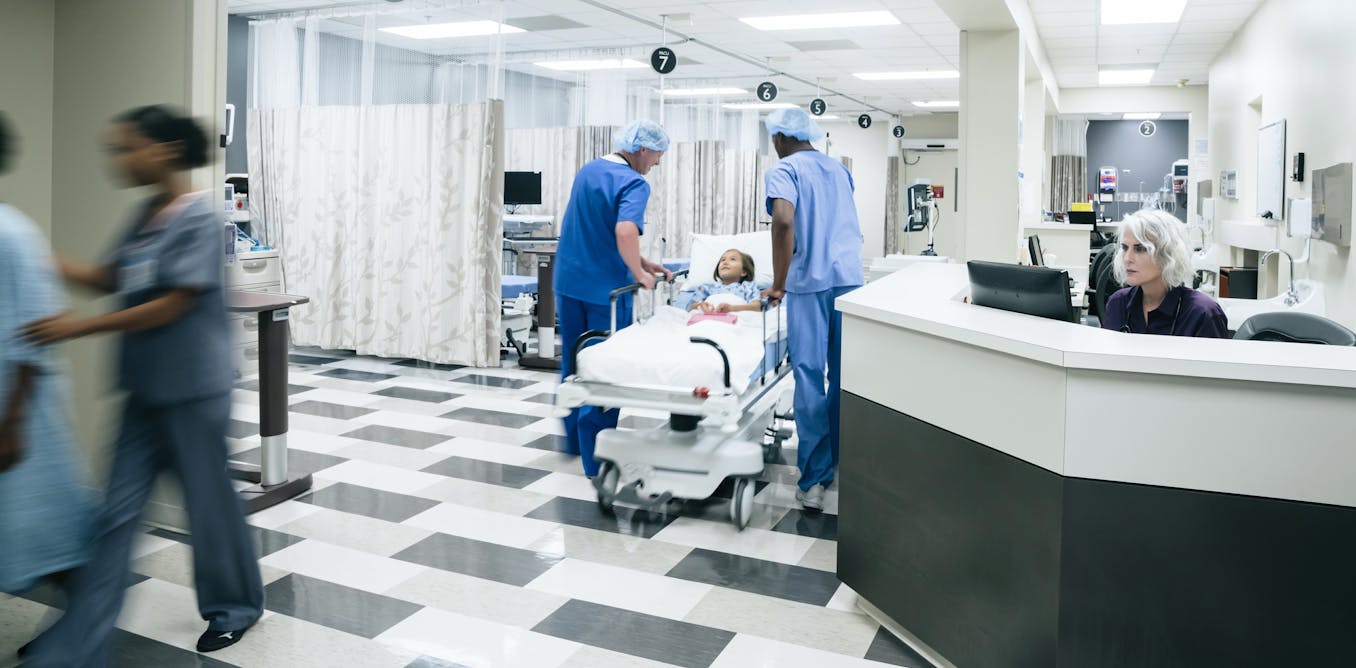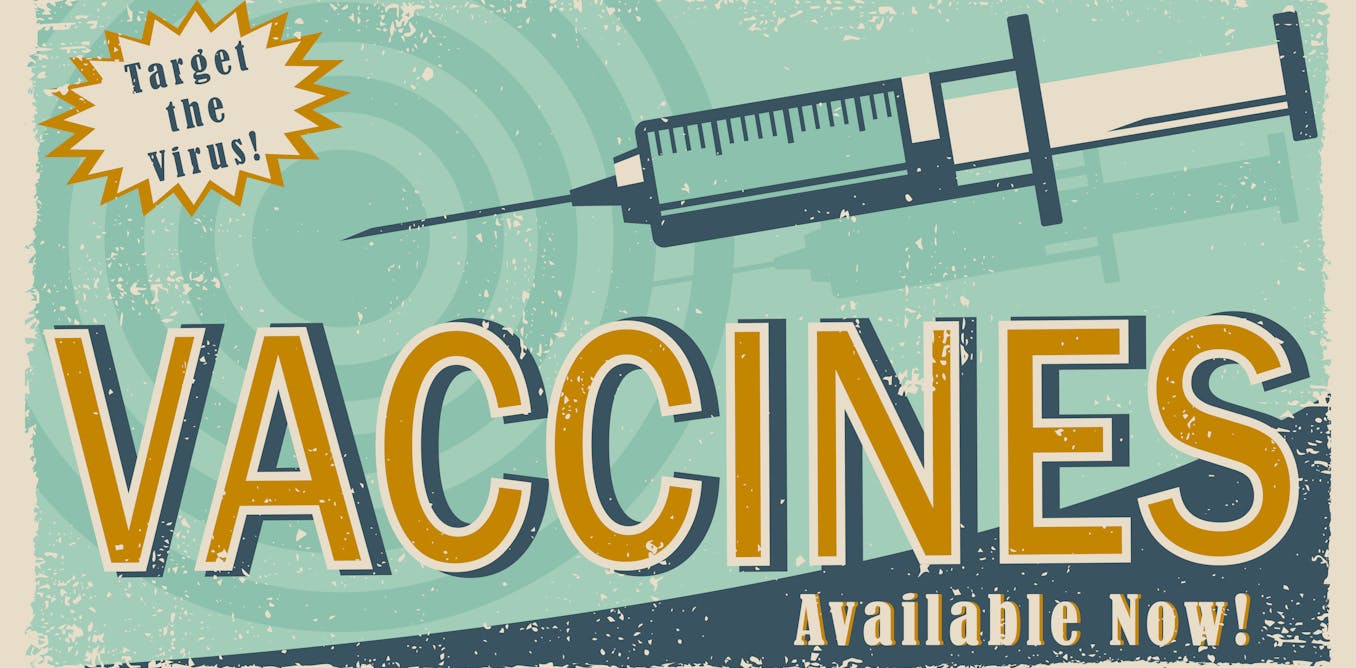HAVE you drunk enough water today?
If not, you might want to run over to the tap and top up that water bottle.
3
Because remember, if you wait until you feel thirsty, you may already be dehydrated.
No one is quite sure where this advice came from, but it’s plastered all over the internet.
NHS guidelines suggest we drink six to eight glasses a day.
Influencers have been hyping the practice of guzzling up to a gallon of water a day, claiming it can help shed pounds and clear headaches.
Water may not be a cure-all, but the downsides of overdoing it are mild.
Aside from rare cases of death from over-hydration in marathon runners or ecstasy users, the main issue with excessive water intake is mild hyponatremia – when there’s too little sodium in the blood.
While not usually serious, it can lead to mild cognitive issues and a higher risk of falls, especially in older adults.
Overall, though, “there are few negative effects of water intake and the evidence of positive effects is quite clear”, according to a recent review.
We’re drowning in hydration hype, but how much of the positive stuff is actually backed by science?
To find out, a team of global experts reviewed 18 studies in a systematic review, looking at the daily benefits of drinking water.
In their paper, published yesterday in Jama Network Open, the researchers revealed that drinking water daily can significantly reduce the risk of two serious health conditions.
Dropping a dress size?
You’ve probably heard of the old adage: “If you’re hungry, you might actually be thirsty.”
Alternatively, perhaps this is what people just say to themselves to lose weight.
Either way, downing some waters can do wonders for those hoping to shed some pounds, according to three separate studies.
Each piece of research found that if people drank 500ml (a little more than two cups) of water before their meal, ate 111 fewer calories.
“Hunger ratings were lower, while subjective fullness ratings were higher with premeal water consumption,” the experts explained.
They also suggested drinking that much water before a meal might have a “psychosocial” effect, in that it “serves as a reminder to eat healthier food”.
Reducing headaches?

3
Dehydration headaches do exist, according to the NHS.
Although there are hundreds of reasons why your head might ache.
And water can sometimes cure them, the systematic review suggested.
What is a UTI? And how do you treat it?
Urinary tract infections (UTIs) are usually caused by E.coli bacteria – found in poo – entering the urinary tract.
The bacteria enter through the tube that carries pee out of the body (urethra).
Women are more likely than men to pick up UTIs as they have a shorter urethra than men.
This means bacteria are more likely to reach the bladder or kidneys and cause an infection.
According to the NHS, things that increase the risk of bacteria getting into the bladder include:
- Having sex
- Pregnancy
- Conditions that block the urinary tract – such as kidney stones
- conditions that make it difficult to fully empty the bladder – such as an enlarged prostate in men and constipation in children
- Urinary catheters (a tube in your bladder used to drain urine)
- Having a weakened immune system – for example, people with diabetes or people having chemotherapy
- Not drinking enough fluids
- Not keeping the genital area clean and dry
Check if it’s a UTI
Symptoms of a urinary tract infection (UTI) may include:
- Pain or a burning sensation when peeing (dysuria)
- Needing to pee more often than usual
- Needing to pee more often than usual during the night (nocturia)
- Needing to pee suddenly or more urgently than usual
- Pee that looks cloudy
- Blood in your pee
- Lower tummy pain or pain in your back, just under the ribs
- A high temperature, or feeling hot and shivery
- A very low temperature below 36C
Your pee may also be dark or smell. If this is your only symptom, it might be because you’ve not been drinking enough water.
What to do if you think you have a UTI
If you think you have UTI symptoms, you should speak to your GP to discuss treatment options.
Most people will need antibiotics.
Some people may be prescribed a ‘delayed antibiotic’, meaning they’ll be asked only to use it if their symptoms don’t go away after a certain amount of time.
If you keep getting UTIs, your GP might recommend you have a low dose of antibiotics over a long period of time or refer you to a specialist for more tests and treatments.
For women who have gone through menopause, there is evidence that vaginal oestrogen creams can reduce UTI symptoms.
Source: NHS
Two studies that looked into the benefits of drinking water on people with recurring headaches found that drinking 1.5 litres each day for three months can improve “quality of life”.
Some patients in the studies reported fewer days with headaches.
But the small sample sizes of each meant the results were not “statically significant” which means that the results of a study are unlikely to be due to anything other than chance, the authors said.
“Future research is warranted to better understand whether there is a therapeutic or preventive role for water interventions for patients with recurrent or debilitating headaches,” they explained.
Help you control your diabetes?
Turns out, sipping water could help keep blood sugar in check, especially for people with type 2 diabetes.
The experts found that drinking a litre of water daily before meals helped lower blood sugar levels in people with diabetes over eight weeks – especially those with high starting levels.
In people with T2 diabetes, the body either doesn’t make enough insulin or doesn’t use it properly.
Insulin is a hormone that helps move sugar (glucose) from the blood into cells, where it’s used for energy.
When insulin isn’t working well or there’s not enough of it, sugar builds up in the blood instead of being used by the cells, causing high blood sugar levels.
Medication helps manage blood sugar by either boosting insulin production, making the body more sensitive to insulin, or helping the kidneys remove excess sugar.
Without medication, blood sugar can stay too high, which can lead to serious health problems over time, like heart disease, nerve damage, and kidney issues.
Researchers suggest this simple, low-cost habit might reduce the need for medication.
Interestingly, the benefit was tied to premeal timing and may also be linked to weight loss, as participants who drank water shed more pounds than those who didn’t.
Stopping UTIs?

3
Anyone who’s ever had a UTI (urinary tract infection) will wince at the memory.
That insistent need to pee and the excruciating burning sensation that follows once you do is hard for most to forget.
For many, antibiotics are the first real port of call, after cranberry juice reliably fails to kill the pain.
Now researchers have proved that in women with recurring UTIs (infections that take place at least five times a year) upping water by 1.5 litres a day reduced episodes and extended time between infections.
High fluid intake may help by flushing out bacteria and preventing it from sticking to bladder walls, they suggested.
This simple approach could cut down on UTIs and reduce the need for antibiotics, helping prevent resistance.
However, a study on a 1900 ml per day water intervention didn’t show a clear UTI prevention benefit, likely due to a small sample size and short duration.
Reducing the risk of kidney stones?
Kidney stones are crystals that form when waste products in the blood build up in the kidneys.
Some people pass them without pain, but they can cause severe abdominal discomfort if they get stuck in the kidneys or the ureter, the tube that connects the kidneys to the bladder.
The scientists found two studies that suggested increasing water intake to produce at least two litres of urine a day reduced kidney stone events by more than half and delayed recurrence.
They said drinking more water may also lower stone risk in healthy people by reducing the concentration of salts that form stones, preventing supersaturation and stone buildup.




